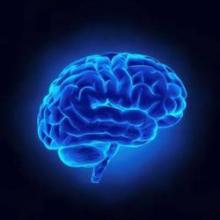The effect of attention-deficit/hyperactivity disorder on white matter in the primary motor and medial orbitofrontal cortices differs significantly between boys and girls, according to Lisa Jacobson, Ph.D., and her associates.
For the study, 60 children aged 8-12, split evenly between boys and girls, were compared to a typically developing control group of similar size and makeup via diffusion tensor imaging. For boys with ADHD, fractional anisotropy (FA) was reduced in the primary motor cortex, compared with the control group. But FA was similar in the medial orbitofrontal cortex among the boys. For girls with ADHD, FA was similar in the primary motor cortex to that of the control group but higher in the medial orbitofrontal cortex, reported Dr. Jacobson, a psychologist and pediatric neuropsychologist at Kennedy Krieger Institute, Baltimore.
Low FA in the primary motor cortex was associated with a higher reaction time variability (CVRT) in boys, and higher commission error rates in girls. Low FA in the medial orbitofrontal cortex was associated with higher CVRT and higher commission error rates in both boys and girls.
The study results “suggest a sexually dimorphic pattern of frontal WM abnormalities in children with ADHD, such that boys show greater involvement of motor regions crucial to more basic aspects of motor response control, whereas girls show greater involvement of prefrontal regions important to top-down regulation of higher order emotional and behavioral responses,” the investigators said.
Find the study in Journal of the American Academy of Child & Adolescent Psychiatry (doi: 10.1016/j.jaac.2015.08.014).


